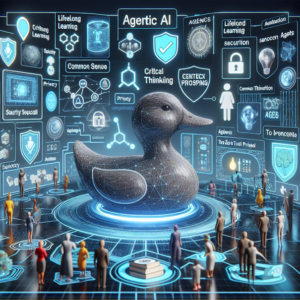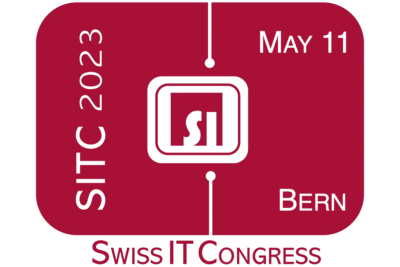This article covers present issues around the ICT professions. Paradigms of the past are compared to those emerging at present and the road forward is described as one that involves letting go of former and well supported beliefs and embracing new while at the same time unsure developments in both technology and the industry in terms of implementation of new ideas and how they are managed in team to success. Specific reference is made to the development and future of the Swiss Informatics Society, it being the center of thought and a reference for those who are employed in the field.
Introduction
The field of ICT has considerably changed within the last decades. It has become significantly wider and much more heterogeneous. Many years ago, it was widely known and accepted which competencies one could expect from an ICT professional. Distinguishing between creators, operators, and users of ICT solutions was, at that time, enough. At that time, it also made sense to debate changes in future paradigms, as it was rather straightforward which impact they might have on the discipline and the community.
However, that time is over. The field has become too complex and the future is too unpredictable to justify normative views of what ICT is. Today, the pressing issues of ICT professionals cannot be identified by lively discussions in an ivory tower. Such can only be observed in real settings, where the observers are somewhat embedded into the practice of these settings. Even more so as the entanglement between society, digital transformation, computer science, and mathematics has blurred the boundaries of disciplines to such an extent that is no longer possible to durably define the area of computer science.
A Short Sketch of Changes
Nowadays, ICT initiatives do not only require cross-disciplinary collaboration, but also a rich bundle of ICT expertise as diverse as is possible. While there use to be one world for ICT professionals, or at least the illusion of it, we have now a system of ICT galaxies, some very far apart from others.
Young ICT professionals find it hard to understand that the value of teamwork is put in questioned by older colleagues, because, for the young it is necessity in their ICT universe. Communication skills are becoming a key success factor, and this involves many more competencies than what used to be in the domain of business informatics. Once celebrated paradigms become consistently overturned –as microservices did with the principle to separate tiers. The engineering of large-scale applications requires a diverse set of techniques for complexity management much beyond the classical solution concepts of distributed computing, which are fade from curricula. Huge knowledge gaps appear in practice – e.g. concerning infrastructure services, because many topics of high practical relevance are hardly understood by anybody and in addition to this people must deal with many different aspects.
Still lots of good ICT traditions have survived and have spread, such as the commitment towards communities and the engagement in online communities. Some concepts invented in ICT, like agility, have even spread out to non-ICT professions. Furthermore, ICT companies are strongly involved in the development of new work concepts; and the borderlines towards mathematics and econometrics are dissolving with the fast entrance of new methods, e.g. for dealing with causality. This continues while traditional competences are lost due to management deciding to depend on de facto standard solutions from the big players. It is thus no longer possible to come up with normative sets of competences. The sum of basic ICT competencies is beyond a single personbyte, and for an increasing number of ICT initiatives the sum of needed competencies is beyond a single firmbyte.
Emerging issues for ICT professionals
The Swiss Informatics Society should, in the future, invest into investigations of what the truly relevant topics for ICT professionals are. To some extent this is done by SI’s special interest groups, but these SIGs only address their specific communities. Investigations must be broader. For each topic that can be identified, SI should establish a working group that tries to embed itself into the practical real-world context, talk to people working there, and identify options how to address these issues. Based on the findings of this working group, the most promising options should be pursued, possibly leading to a new SIG.
Some of the issues to be addressed are economic or managerial restrictions of investments into software quality, the lack of an understanding of technical debt among IT managers, the increasing dependency on frameworks provided by tech giants, the rising skills needs for IT departments that used to practice lean IT, and the development of secondary school education on media and computers, just to name a few. Industrial practice often looks at Silicon Valley or other leading tech areas, but too often it does not copy the virtues there but rather imitates the blind spots.
Policy makers like to call out for imitation of success models that rely on preconditions that are impossible to establish in Switzerland,; at the same time they do not invest in the exploitation of specific strengths in Switzerland like the involuntarily magnificent expertise in dealing with heterogeneity. Many curricula do not prepare students for the challenges in business life, such as teamwork or – remarkably enough – research in practical settings. There are lots of local niches that are well shielded from international competition. Competencies that are dependent on one another are weighed in against each other, like requirements engineering versus prototyping. Too many experts defend the true computer science versus informatics in context (like business informatics, media informatics, bioinformatics), data science and econometrics, not to mention business practices relying on informatics like CRM that is at times treated like an antagonistic force. . Thus, there is a wide field to work on change initiatives to free ourselves from dysfunctional practice. But there is also a lot of old knowledge that is in danger of getting lost and a lot of emerging new knowledge that is in danger of remaining ignored.
SI can and should take care of at least few of these issues. However, it makes little sense to return to the good old times or to fight against invaders from other disciplines, like coding data scientists from molecular biology. It is even rather unclear whether there is a huge divide between the interests of SI professionals and the interests of SI companies, as many IT companies are very small ones that are run by ICT professionals. Instead, the digital transformation of society reveals paradigm changes from one generation to the next that must be respected, e.g. the belief in the fundamentally good of transparency. In addition, this technologically breaks all kinds of established legal defense lines for key societal assets like guaranteed privacy. These disruptive changes demand new solutions to which computer science can contribute significantly if those involved are willing to work in transdisciplinary manner. Therefore, another key challenge for ICT professionals and an important topic for SI is how to stay rooted in the fundamentals of computer science while performing transdisciplinary work for a lifetime.
Luckily, there is a simple denominator to this wide field of potential future engagements of SI: Knowledge and knowhow are of critical importance but knowing it all does not help. Instead, curiosity is the key to sustainable success.
_____
References:
Adam Barr: The Problem with Software – Why Smart Engineers Write Bad Code, MIT Press 2018 (describing real world challenges for coders).
César A. Hidalgo: Why Information Grows – The Evolution of Order, from Atoms to Economies, Basic Books 2015 (with the introduction of the terms “personbyte” and “firmbyte”).
Jeanne W. Ross, Cynthia M. Beath, Martin Mocker: Designed for Digital – How to Architect Your Business for Sustained Success (Management on the Cutting Edge), MIT Press 2019 (discussing company fitness for digital transformation).
Clive Thompson: Coders – The Making of a New Tribe and the Remaking of the World, Penguin Press 2019 (on the history of coding)









